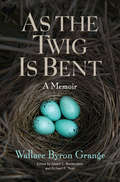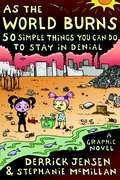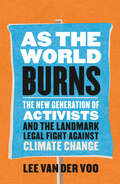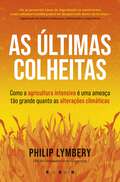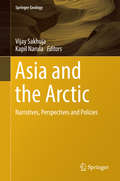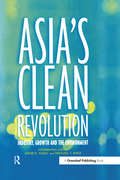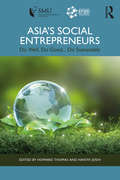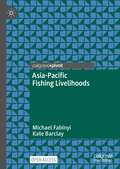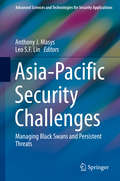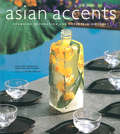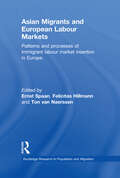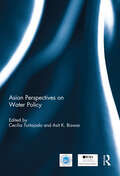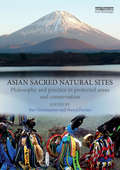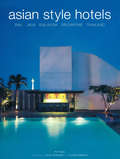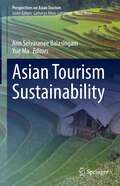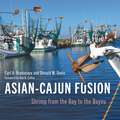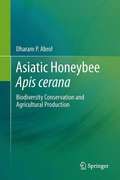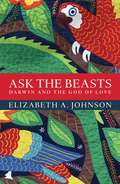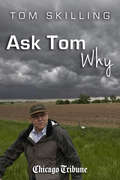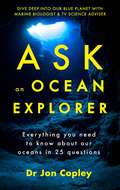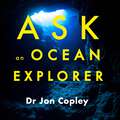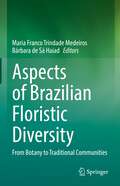- Table View
- List View
As the Twig Is Bent: A Memoir
by Wallace Byron GrangeWallace Byron Grange (1905–87) was an influential conservationist who worked alongside Aldo Leopold. Grange’s story vividly describes his mostly idyllic childhood watching bird life in the once grand prairies just west of Chicago. He documents his family’s journey and pioneering struggle to operate a farm on the logged cutover country in northern Wisconsin, a land that provided him with abundant opportunities to study the lives of wild creatures he loved most. Written when Grange was in his sixties, As the Twig Is Bent conveys how a leading conservationist was formed through his early relationship to nature. In beautifully composed vignettes, he details encounters both profound and minute, from the white-footed mice attracted by cookie crumbs in his boyhood clubhouse to the sounds of great horned owls echoing through the wintry woods. As he develops his own understanding of the natural world, he comes to an awareness of the dramatic and devastating role of humankind on ecosystems. Grange’s poignant observations still resonate today amid global conversations about the fate of our natural resources and climate change.
As the World Burns: 50 Simple Things You Can Do to Stay in Denial
by Derrick Jensen Stephanie McmillanTwo of America's most talented activists team up to deliver a bold and hilarious satire of modern environmental policy in this fully illustrated graphic novel. The U.S. government gives robot machines from space permission to eat the earth in exchange for bricks of gold. A one-eyed bunny rescues his friends from a corporate animal-testing laboratory. And two little girls figure out the secret to saving the world from both of its enemies (and it isn't by using energy-efficient light bulbs or biodiesel fuel). As the World Burns will inspire you to do whatever it takes to stop ecocide before it's too late. <P><P> <i>Advisory: Bookshare has learned that this book offers only partial accessibility. We have kept it in the collection because it is useful for some of our members. Benetech is actively working on projects to improve accessibility issues such as these.</i>
As the World Burns: The New Generation of Activists and the Landmark Legal Fight Against Climate Change
by Lee van der Voo&“The story of Juliana v. United States and the committed young people behind it will give you hope in the next generation.&” —Elizabeth Kolbert, author of The Sixth Extinction Do children have a right to inherit a livable planet? Is the government obliged to protect it? That&’s the question posed by Juliana v. United States, one of the most critical lawsuits of our time. Twenty-one young people from across America sued the federal government over climate change, charging that actions promoting a fossil fuel economy violate their constitutional rights to life, liberty, and property. Their trial could be the civil rights trial of the century, but it hasn&’t happened yet. As the World Burns follows the plight of the young plaintiffs, chronicling their legal battle through a year of drought and wildfire, floods and hurricanes, and the most tumultuous political season in modern history. The plaintiffs wrenchingly describe personal experiences with recurring &“thousand-year&” floods, wildfire smoke so thick they can&’t ride a bike to school, drought that threatens family farms, and disappearing coastlines that send waves lapping ominously at their doors. Along the way, journalist Lee van der Voo weaves their experience into a broader narrative of America, where politics and policy threaten the very existence of our youth and our way of life.As the World Burns is climate breakdown like you&’ve never seen it—through the eyes of the young.
As Últimas Colheitas: Como a Agricultura Intensiva É uma Ameaça Tão Grande Quanto as Alterações Climáticas
by Philip LymberyUma visão provocadora do futuro, que nos desafia a pensar melhor acerca do que compramos e comemos, e do impacto das nossas escolhas nas alterações climáticas. Partindo de um alerta perturbador das Nações Unidas de que os solos do mundo se podem esgotar no período de uma vida, Philip Lymbery, uma das pessoas mais influentes na indústria alimentar, percorre os bastidores do grande agronegócio em vários pontos do mundo, revelando como a pressão sobre os solos constitui uma ameaça séria à nossa sobrevivência. Nas suas pesquisas, porém, o autor também encontra esperança nas práticas de pioneiros que estão a repensar os métodos agrícolas, a redescobrir técnicas tradicionais e a desenvolver tecnologias para alimentar uma população global em constante expansão. Influente e persuasivo, este livro alerta para a realidade do sistema alimentar global, demonstrando como podemos regenerar os solos do mundo, acabar com a crueldade animal, salvar a vida selvagem, estabilizar o clima e salvaguardar o planeta para as gerações futuras. Os elogios da crítica: «Philip Lymbery expõe este assunto essencial sob a perspetiva de um ativista experiente — conhecedor o suficiente para ficar chocado, mas suficientemente moderado para nos persuadir a assumir a responsabilidade pelo sistema que nos alimenta.» — The Guardian«Neste livro extremamente bem escrito, cuja leitura aconselho vivamente, Philip Lymbery descreve como a agricultura intensiva prejudica o meio ambiente e inflige sofrimento aos animais sencientes, propondo alternativas sustentáveis para resolver o problema. Há de facto esperança para o nosso planeta, e cada um de nós pode desempenhar um papel.» — Jane Goodall, primatologista fundadora do Instituto Jane Goodall e mensageira da paz das Nações Unidas«Um livro extremamente importante que deve ser lido por todos os que desejam que a humanidade sobreviva para além do período de uma vida. As soluções propostas devem ser implementadas como se o nosso futuro dependesse disso — e de facto depende.» — Andrew Knight, Professor de Ética e Bem-Estar Animal da Universidade de Winchester «Um relato persuasivo e contundente sobre como a agricultura industrial está a impulsionar as emergências climáticas e a pôr em risco a biopersidade, ao mesmo tempo que prejudica a nossa saúde. Este livro é um apelo à ação.» — Isabella Tree, autora e jornalista premiada
Asia and the Arctic: Narratives, Perspectives and Policies (Springer Geology)
by Vijay Sakhuja Kapil NarulaThis book presents narratives, perspectives and policies on the Arctic and brings to fore the strategies of five Asian countries - China, India, Japan, Republic of Korea and Singapore who were granted the status of Permanent Observers in the Arctic Council in 2013. The book also captures Arctic countries' reactions to Asian approaches, and their expectations from these countries. The melting of the polar sea-ice induced by climate change has placed the Arctic region in the forefront of global scientific, economic, strategic and academic interest. The discourse involves a number of issues such as claims of the littoral countries to the continental shelves of the region, the management and exploitation of its living and non-living resources, the rights and interests of indigenous communities, and the prospects of new ice-free shipping routes. The contemporary discourse also suggests that the Arctic region presents challenges and offers opportunities for the international community. These issues have given rise to new geopolitical, geoeconomic, and geostrategic dynamics amongst the Arctic littorals, and led to the growing interest of non-Arctic states in the affairs of the Arctic. It is evident that the Asian countries have a variety of interests in the Arctic, and the grant of Permanent Observer status to these countries is an acknowledgement of their capabilities. These countries are keen to explore opportunities in the Arctic, and have begun to formulate appropriate long-term national strategies. The preliminary approach of the Asian Observer countries has rightly been to graduate from 'involvement' to 'engagement' in the Arctic, which seems to have generated significant interest amongst analysts. This book helps to understand the approaches of various Arctic and non-Arctic stakeholders, in light of the evolving dynamics in the region.
Asia's Clean Revolution: Industry, Growth and the Environment
by David Angel Michal RockThe world's environmental future will be determined in significant part by what happens in the rapidly industrialising and urban economies of Asia. The sheer scale of urban population and industrial growth in Asia - from Indonesia to China - and the energy and materials intensive character of the development process constitutes a dark shadow over the region's, and indeed the world's, environment. And yet this challenge is also an opportunity. Precisely because so much of the urban-industrial investment within developing Asia has yet to take place, the opportunity exists to shape a different development future - one that is far less energy, materials and waste intensive.Asia's Clean Revolution examines the prospects for and pathways to such a new trajectory. The book lays out a path-breaking vision of how developing economies might go beyond environmental regulation and put in place an array of policies and institutions that could integrate environmental, industrial and technological goals. These findings provide important input for negotiators considering climate change on a global scale.The book approaches the challenge of growth and environment in Asia in a novel way, by identifying six major transformational dynamics under way in the world today, and assessing whether these can be harnessed to the goal of improved environmental performance of industry.With a set of specially commissioned chapters from the leading authorities in North America and Asia, this ground-breaking book is the first to present concrete policy solutions to the looming crisis driven by large-scale urban-industrial growth in developing Asia.
Asia's Social Entrepreneurs: Do Well, Do Good... Do Sustainably
by Howard Thomas Havovi JoshiSocial enterprises of all forms drive inclusive growth by creating social and economic networks, and a stable ecosystem, that enable societies to grow and prosper. This book presents a collection of ten case studies that demonstrate the important role played by social enterprises in driving inclusive growth in Asia’s economies. Unlike the traditional models, such as NGOs and charities, that are donor dependent for funding, a social enterprise is a hybrid business model that includes both social mission and revenue generation goals to ensure sustainability and self-reliance. The ten case studies in the book provide a ringside view of how social enterprises operate and evolve to create, sustain, and scale up their social impact. Readers will gain a practical understanding of how social entrepreneurs struggle to maintain a balance between their two seemingly contradictory goals of creating social value and generating economic returns. The book carries the readers on the journey of each of these ten social enterprises, offering unique and valuable insights into the motivations, tribulations, successes, and even failures of these organisations—critical for continued learning, contribution, and innovation in the domain. The book is appropriate for all readers interested in the role social entrepreneurship plays in stimulating economic growth in Asia, including organisations, government, and universities, as well as individuals.
Asia-Pacific Fishing Livelihoods
by Kate Barclay Michael FabinyiThis open access book explores fishing livelihoods in the context of the wider contexts in which they are embedded. Drawing on case studies from across the Asia-Pacific region, the book highlights how fishing livelihoods are shaped by globalisation, social relationships and governance. The book concludes by showing how better understanding these relationships can contribute to governance for healthier ecosystems and social wellbeing.This is an open access book.This is an open access book.
Asia-Pacific Security Challenges: Managing Black Swans and Persistent Threats (Advanced Sciences and Technologies for Security Applications)
by Anthony J. Masys Leo S. F. LinThis edited book examines the contemporary regional security concerns in the Asia-Pacific recognizing the 'Butterfly effect', the concept that small causes can have large effects: 'the flap of a butterfly's wings can cause a typhoon halfway around the world'. For many Asia-Pacific states, domestic security challenges are at least as important as external security considerations. Recent events (both natural disasters and man-made disasters) have pointed to the inherent physical, economic, social and political vulnerabilities that exist in the region. Both black swan events and persistent threats to security characterize the challenges within the Asia-Pacific region. Transnational security challenges such as global climate change, environmental degradation, pandemics, energy security, supply chain security, resource scarcity, terrorism and organized crime are shaping the security landscape regionally and globally. The significance of emerging transnational security challenges in the Asia-Pacific Region impact globally and conversely, security developments in those other regions affect the Asia-Pacific region.
Asian Accents
by Peter Mealin Martyne Kupciunas Lisa Kim-TribolatiAsian Accents fuses an Eastern tradition of serenity and balance with a Western sense of fun and curiosity. Experience the diversity and richness of Asian culture and welcome the exotic furnishings, textiles and flavors of Asia into your home.From casual cocktails by the pool to sophisticated dinners Asian Accents presents tips and ideas for a variety of special occasions, stunningly photographed in eleven beautiful homes, where food and decor complement each other perfectly
Asian Migrants and European Labour Markets: Patterns and Processes of Immigrant Labour Market Insertion in Europe (Routledge Research in Population and Migration)
by Felicitas Hillmann Ton Van Naerssen Ernst SpaanIn an era of globalization and demographic transition international migration has become an important issue for European governments. The past decades have seen an increasing and diversifying flow of migrants from different parts of the world, including many from South, Southeast and East Asia. It has become apparent that in several European countries the demand for workers in certain sectors of the labour market is increasing and that Asia has become the source for these workers. This collection explores the phenomenon of Asian immigration in Europe, particularly focusing on the ways in which Asian immigrants gain access to local labour markets. The book includes studies of several countries including Germany, France and the United Kingdom - shedding light on the labour market positions of different ethnic groups within Europe. Asian Migrants and European Labour Markets will interest scholars in the field of labour economics, population and migration studies and international business.
Asian Perspectives on Water Policy (Routledge Special Issues on Water Policy and Governance)
by Asit K. Biswas Cecilia TortajadaAsian countries are not homogenous. They are in different stages of social and economic development, with cultural conditions and institutional and legal frameworks varying from one country to another. Therefore, how water can be successfully managed differs from one country to another. The book provides authoritative analyses of how water is being managed in different Asian countries, ranging from the world’s most populous countries like China and India to a city state like Singapore and an island country like Fiji. It also analyses in depth several wide ranging issues like terrorism, human rights, water-energy nexus, and roles of media, along with comprehensive discussions of legal, institutional and regulatory frameworks in an Asian water management context. The overall focus is on how water can be managed efficiently, cost-effectively and equitably in various Asian countries.This book was based on a special issue of the International Journal of Water Resources Development.
Asian Sacred Natural Sites: Philosophy and practice in protected areas and conservation
by Bas Verschuuren Naoya FurutaNature conservation planning tends to be driven by models based on Western norms and science, but these may not represent the cultural, philosophical and religious contexts of much of Asia. This book provides a new perspective on the topic of sacred natural sites and cultural heritage by linking Asian cultures, religions and worldviews with contemporary conservation practices and approaches. The chapters focus on the modern significance of sacred natural sites in Asian protected areas with reference, where appropriate, to an Asian philosophy of protected areas. Drawn from over 20 different countries, the book covers examples of sacred natural sites from all of IUCN’s protected area categories and governance types. The authors demonstrate the challenges faced to maintain culture and support spiritual and religious governance and management structures in the face of strong modernisation across Asia. The book shows how sacred natural sites contribute to defining new, more sustainable and more equitable forms of protected areas and conservation that reflect the worldviews and beliefs of their respective cultures and religions. The book contributes to a paradigm-shift in conservation and protected areas as it advocates for greater recognition of culture and spirituality through the adoption of biocultural conservation approaches.
Asian Sacred Natural Sites: Philosophy and practice in protected areas and conservation
by Bas Verschuuren Naoya FurutaNature conservation planning tends to be driven by models based on Western norms and science, but these may not represent the cultural, philosophical and religious contexts of much of Asia. This book provides a new perspective on the topic of sacred natural sites and cultural heritage by linking Asian cultures, religions and worldviews with contemporary conservation practices and approaches.The chapters focus on the modern significance of sacred natural sites in Asian protected areas with reference, where appropriate, to an Asian philosophy of protected areas. Drawn from over 20 different countries, the book covers examples of sacred natural sites from all of IUCN’s protected area categories and governance types. The authors demonstrate the challenges faced to maintain culture and support spiritual and religious governance and management structures in the face of strong modernisation across Asia.The book shows how sacred natural sites contribute to defining new, more sustainable and more equitable forms of protected areas and conservation that reflect the worldviews and beliefs of their respective cultures and religions. The book contributes to a paradigm-shift in conservation and protected areas as it advocates for greater recognition of culture and spirituality through the adoption of biocultural conservation approaches.
Asian Style Hotels
by Jacob Termansen Kim Inglis Pia Marie MolbechWith more than 500 ravishing full-color photographs, Asian Style Hotels brings you to the best hotels in Southeast Asia. The super-deluxe establishments included here are all at the cutting-edge of hotel design and management. Each property has been hand-picked according to a set of criteria that includes a strong design aesthetic, architectural integrity, and a sense of individuality a million miles away from the cookie-cutter approach of chain hotels. Asian Style Hotels is the definitive guide to Southeast Asia's finest places to stay.
Asian Tourism Sustainability (Perspectives on Asian Tourism)
by Yue Ma Ann Selvaranee BalasingamThis book brings together a collection of chapters that investigate sustainable tourism development in different Asian contexts; from stakeholders’ perspectives, existing issues in the market, as well as the impacts of COVID-19 on tourism. It highlights the importance of tourism sustainability in Asia. Specifically, this book examines these themes by examples related to Asian tourism such as; social-cultural impact of sustainable growth, environmental constraints and policies, community engagement, moral limits of the market, stakeholders’ participation in tourism development, the hindered interaction between foreign tourists and local community, impact of the pandemic and proposed ways forward. This edited volume substantiates this by using evidence of quantitative, qualitative and mixed methods approaches aligned with empirical data to show sustainable efforts and impacts. This book is of interest to researchers and practitioners as it offers timely understandings of sustainable tourism from multiple perspectives within the Asian context.
Asian-Cajun Fusion: Shrimp from the Bay to the Bayou (America's Third Coast Series)
by Carl A. Brasseaux Donald W. DavisShrimp is easily America’s favorite seafood, but its very popularity is the wellspring of problems that threaten the shrimp industry’s existence. Asian-Cajun Fusion: Shrimp from the Bay to the Bayou provides insightful analysis of this paradox and a detailed, thorough history of the industry in Louisiana. Dried shrimp technology was part of the cultural heritage Pearl River Chinese immigrants introduced into the Americas in the mid-nineteenth century. As early as 1870, Chinese natives built shrimp-drying operations in Louisiana’s wetlands and exported the product to Asia through the port of San Francisco. This trade internationalized the shrimp industry. About three years before Louisiana’s Chinese community began their export endeavors, manufactured ice became available in New Orleans, and the Dunbar family introduced patented canning technology. The convergence of these ancient and modern technologies shaped the evolution of the northern Gulf Coast’s shrimp industry to the present. Coastal Louisiana’s historic connection to the Pacific Rim endures. Not only does the region continue to export dried shrimp to Asian markets domestically and internationally, but since 2000 the region’s large Vietnamese immigrant population has increasingly dominated Louisiana’s fresh shrimp harvest. Louisiana shrimp constitute the American gold standard of raw seafood excellence. Yet, in the second decade of the twenty-first century, cheap imports are forcing the nation’s domestic shrimp industry to rediscover its economic roots. “Fresh off the boat” signs and real-time internet connections with active trawlers are reestablishing the industry’s ties to local consumers. Direct marketing has opened the industry to middle-class customers who meet the boats at the docks. This “right off the boat” paradigm appears to be leading the way to reestablishment of sustainable aquatic resources. All-one-can-eat shrimp buffets are not going to disappear, but the Louisiana shrimp industry’s fate will ultimately be determined by discerning consumers’ palates.
Asiatic Honeybee Apis cerana: Biodiversity Conservation and Agricultural Production
by Dharam P. AbrolDespite its economic usefulness, biodiversity of Asian hive bee Apis cerana is suffering precipitous decline and is threatened with extinction in its entire native habitat. Although a number of publications have appeared on honeybees in the market no attempt has been made to approach the subject in systematically and in a comprehensive manner in case of Apis cerana. There is still not enough knowledge on different facets of biological conservation, agricultural production and role in improving food security and livelihoods. An attempt has been made in this book to fill the gap by providing detailed information on different aspects of Apis cerana leading to sustainability and environmental protection. This book discusses information on varied aspects of Apis cerana biology, biogeography, reproduction, genetics, molecular phylogeny, interaction with other species, floral resources, dance language, safety from pesticides, management problems, loss of genetic diversity, behavioural defence, role in food production, livelihood security and conservation strategies for protecting biodiversity and enhancing crop productivity. The compilation of this book is unique in the sense that in the context of pollinator decline over the world, conservation of this species will be a step for sustaining food security.
Ask The Beasts: Darwin and the God of Love
by Elizabeth A. JohnsonFor millennia plant and animal species have received little sustained attention as subjects of Christian theology and ethics in their own right. Focused on the human dilemma of sin and redemptive grace, theology has considered the doctrine of creation to be mainly an overture to the main drama of human being`s relationship to God. What value does the natural world have within the framework of religious belief? The crisis of biodiversity in our day, when species are going extinct at more than 1,000 times the natural rate, renders this question acutely important. Standard perspectives need to be realigned; theology needs to look out of the window, so to speak as well as in the mirror. Ask the Beasts: Darwin and the God of Love leads to the conclusion that love of the natural world is an intrinsic element of faith in God and that far from being an add-on, ecological care is at the center of moral life.
Ask Tom Why
by Chicago Tribune Staff Tom SkillingAsk Tom Why is a collection of articles originally written by Tom Skilling for his Chicago Tribune column of the same name. Skilling, who is WGN-TV's chief meteorologist, answers questions covering all topics pertaining to weather, the sky, and our environment.Split into three sections, the book covers storms and inclement weather; the sun, moon, and sky; and temperature - all expressed with the authority and accuracy of Chicago's favorite meteorologist. Skilling's nearly forty years in the meteorology field make him one of the most trusted voices in a city known for its erratic weather.From the mundane to the anomalous, Skilling explains all things weather in a way that is easy for readers of any age to understand. Ask Tom Why is the first collection of its kind, and a fantastic read for weather enthusiasts, and anyone who grew up reading, listening, and watching Tom Skilling.
Ask an Ocean Explorer
by Dr Jonathan Copley'Like Sir David Attenborough, he has the rare ability to be an excellent communicator and has written an engaging book sprinkled with mind-blowing facts about the deep oceans' - Daily Express'A new informed perspective on the wide, watery world we inhabit' - Coast magazine 'Book of the month''The gripping story of how ocean science has advanced in recent years is captivatingly told by Jon Copley in this introduction to the deep ocean' - China Dialogue'Deftly conjures the wonders of a bathynaut's world' - NatureIt is often said that we know more about space than we do our own oceans, but is that really the case? Or do we in fact know a great deal more about the oceans than many people realise.The wellbeing of our oceans and the life contained within and around them has never been more important. But to truly understand the vital role they play, we need to first understand how the oceans work, how we explore them and learn about the mysteries they hold, and what our effect is on them.Between these pages is everything you need to know about our oceans, explained in 25 questions. Combining untold history of ocean exploration and personal account of what it's like to be a 'bathynaut' diving in a mini-submarine, Ask an Ocean Explorer brings to light weird and wonderful deep-sea creatures and how the oceans and their future is connected to our everyday lives.
Ask an Ocean Explorer
by Dr Jonathan CopleyHow deep do sharks swim? Have more people been into space then the deep ocean? And what effect are we having on the health of our seas? Ask An Ocean Explorer answers these questions and more!'Our everyday lives are connected to the deep ocean in ways we seldom realise.'In this audiobook is everything you need to know about our oceans, explained in 25 questions. In Ask An Ocean Explorer marine biologist of over 20 years and advisor for the BBC's Blue Planet II, Dr Jon Copley, explains the science and wonder of the deep ocean. Combining untold history of ocean exploration and personal account of what it's like to be a 'bathynaut' diving in a mini-submarine, Ask An Ocean Explorer will bring to light weird and wonderful deep-sea creatures that we find down there and how the oceans and their health is connected to our everyday lives.(P)2019 Hodder & Stoughton Limited
Ask an Ocean Explorer
by Jonathan Copley'Like Sir David Attenborough, he has the rare ability to be an excellent communicator and has written an engaging book sprinkled with mind-blowing facts about the deep oceans' - Daily Express <P><P>'A new informed perspective on the wide, watery world we inhabit' - Coast magazine 'Book of the month' <P><P>'The gripping story of how ocean science has advanced in recent years is captivatingly told by Jon Copley in this introduction to the deep ocean' - China Dialogue <P><P>'Deftly conjures the wonders of a bathynaut's world' - Nature <P><P>It is often said that we know more about space than we do our own oceans, but is that really the case? Or do we in fact know a great deal more about the oceans than many people realise. <P><P>The wellbeing of our oceans and the life contained within and around them has never been more important. But to truly understand the vital role they play, we need to first understand how the oceans work, how we explore them and learn about the mysteries they hold, and what our effect is on them. <P><P>Between these pages is everything you need to know about our oceans, explained in 25 questions. Combining untold history of ocean exploration and personal account of what it's like to be a 'bathynaut' diving in a mini-submarine, Ask an Ocean Explorer brings to light weird and wonderful deep-sea creatures and how the oceans and their future is connected to our everyday lives.
Asmakam Aashcharyam Jagat class 3 - NCERT-25: अस्माकम् आश्चर्यं जगत् ३रीं कक्षा - एनसीईआरटी - २५
by Rashtriy Shaikshik Anusandhan Aur Prashikshan Parishad"अस्माकम् आश्चर्यं जगत्" नामक यह पुस्तक कक्षा 3 के छात्रों के लिए संस्कृत भाषा में तैयार किया गया एक अद्वितीय पाठ्यपुस्तक है, जो बच्चों को उनके परिवेश, परिवार, समुदाय, प्रकृति, और जीवन के विविध पहलुओं से भावनात्मक और बौद्धिक रूप से जोड़ने का प्रयास करता है। यह पुस्तक राष्ट्रीय शिक्षा नीति 2020 और NCF-SE 2023 के अनुरूप निर्मित है और इसमें अनुभवात्मक, गतिविधि-आधारित, और संवादात्मक शिक्षण शैली को प्राथमिकता दी गई है। इसमें बच्चों को पर्यावरण, समाज, विज्ञान, स्वास्थ्य, खाद्य, वस्तुएँ, और प्राकृतिक संसाधनों के बारे में रोचक तरीकों से परिचित कराया गया है। संस्कृत भाषा के माध्यम से यह पुस्तक न केवल भाषा शिक्षण को बढ़ावा देती है, बल्कि रचनात्मकता, विचारशीलता और नैतिक मूल्यों को भी बच्चों में विकसित करती है।
Aspects of Brazilian Floristic Diversity: From Botany to Traditional Communities
by Maria Franco Trindade Medeiros Bárbara de Sá HaiadAspects of Brazilian Floristic Diversity: From Botany to Traditional Communities offers a unique approach in floristic diversity of the Neotropical region, specifically encompassing the Brazilian flora. This volume combines both theoretical and applied aspects of scientific making knowledge in different perspectives of Botanical Science. In this volume, botanical specialists discuss the many different approaches of taxonomic, reproductive, ecological and ethnobotanical aspects of Brazilian floristic diversity, thereby enlightening the global interest in Neotropical species, in particular those from the Brazilian territory. The book addresses relevant questions from many points of view, including anatomy, reproduction, palinology, conservation and ethnobotany, creating an in-depth perception of the flora in its complexity constitution.The book provides a comprehensive outlook on Botany Sciences, considering the history and traditional knowledge of plants, and relating it to contemporary problems and concerns of flora conservation today. With this current perspective, this book reaches a vast audience from the research lines of Botany, and encompasses a broader and interdisciplinary understanding of Aspects of Brazilian Floristic Diversity.
